Before coming to India, I had heard of so many clever tourist scams that I was nervous about losing a lot of money. Now after traveling in India since 2018, I’ve encountered my fair share of them and have been lucky to avoid most of them.
For this post though, I spent hours researching other scams and also talked to my friends who’ve traveled around India. As Thomas Jefferson said, “Knowledge is power,” and by understanding the scams you can avoid losing hundreds or even thousands of dollars!
Most posts on scams in India only cover the most common scams, yet I’ve run into many that I’d never read about. So this article is an exhaustive list, and when you finish reading, you’ll be aware of most of the ways that someone may try to take your money.
Here’s what you’ll find in this post:
- The Most Common Scams in India
- Taxi Scams
- Hotel & Restaurant Scams
- Transaction & Money Scams
- Tourist Attraction Scams
- Shops & Market Scams
- Street Scams
- Train Scams
- Scams by Specific Destinations
WARNING: Most people in India are super nice and hospitable. After researching scams before my trip, I was a bit paranoid that everyone was out to get me. That’s not the case, however knowing these scams should help you avoid them when they occur.
Planning a trip to India at some point? Check out my free ebook to help you save time and money, and avoid headaches. After +4 years in India, I’ve made plenty of mistakes, and this guide shares what I’ve learned so you can have a smoother trip.
The Most Commons Scams in India
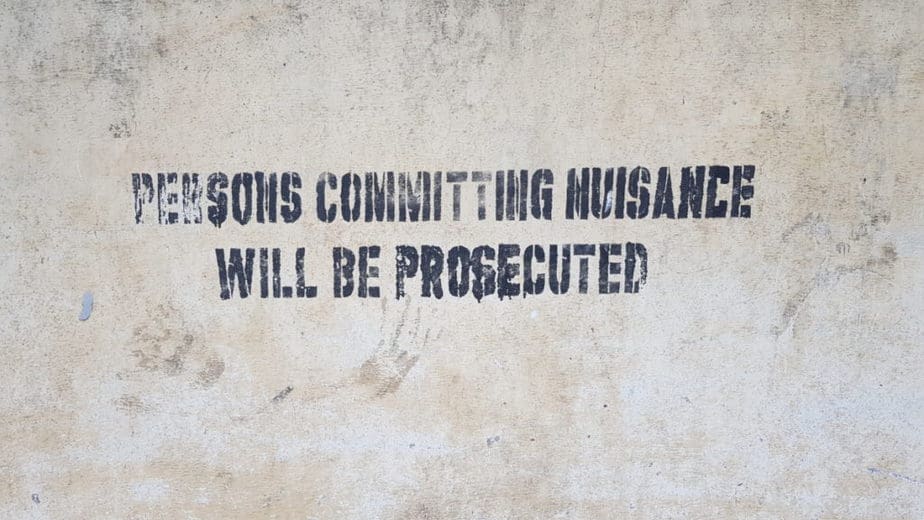
1. Fake Tours
This is one of the most dangerous scams in India because you might end up losing large sums of money and ruining your trip.
The way it works is this:
- You meet a “friendly” local at a train station or other popular tourist destination.
- They convince you that your train has been canceled, there are riots in the city or some other reason for you to cancel your plans.
- They lead you to a fake tourist agency.
- You face high-pressure sales tactics and book another tour that is vastly over-priced.
Be aware that anyone approaching you who seems a bit too friendly is not your friend. And any tour companies that don’t look quite right, probably are not.
Read more: Reasons To Not Visit India
2. Financial Transaction Scams
When you are paying large sums of money, you are most vulnerable to a scam. Whether they slip you a counterfeit bill, hide one of your bills, give you a ripped bill, or don’t have any change… there are many ways you can be scammed when paying.
Stay alert and watchful whenever you pay large sums of money. When you understand how you might be scammed it will be easier to avoid losing money as well.
3. Taxi Drivers Ripping You Off
There are so many ways taxi drivers can get you to pay higher prices. Often it is as simple as charging 5 times as much, but it could be lying to you that your hotel is closed or even stopping before they get there and saying they are there.
Negotiate a price for a taxi or rickshaw before getting in the car AND if you don’t like how the process is going, find another driver. Many cities now have Uber or Ola Cabs, which have fixed rates so you can avoid this.
4. Beggar Scams
Walking the streets of India can break your heart, and the even sadder thing is that you are often manipulated into feeling worse… so you will give your money.
Begging in India is a $1.5 billion dollar industry and there are many ingenious ways to get you to feel guilty so you give $$$.
In general, don’t give money to beggars. They may not even ask for money, instead, asking for milk or pens… but this is also a scam. Below I will teach you specific ways you might be manipulated.
What is One of the Best Ways To Protect Yourself from Scams?
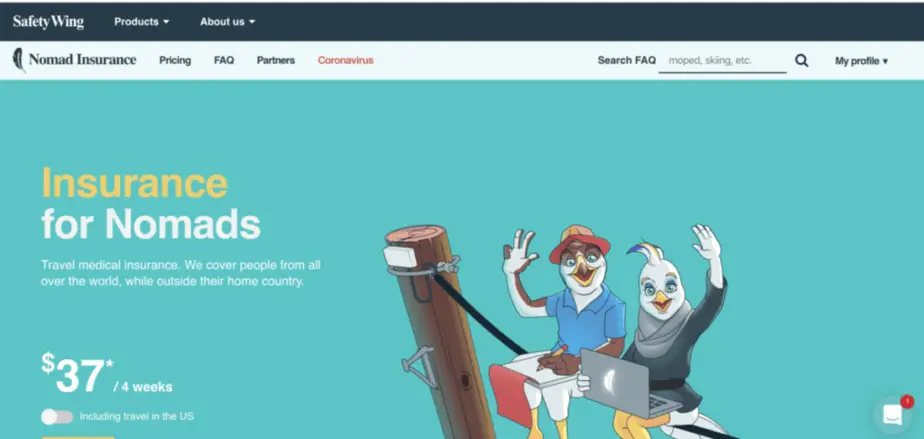
One of the best ways to protect yourself is to invest in great travel insurance.
Good travel insurance can insure your belongings and pre-paid travel expenses, so you are reimbursed if you were to get scammed.
Click the link to check out my recommendations for travel insurance.
Taxi & Private Driver Scams
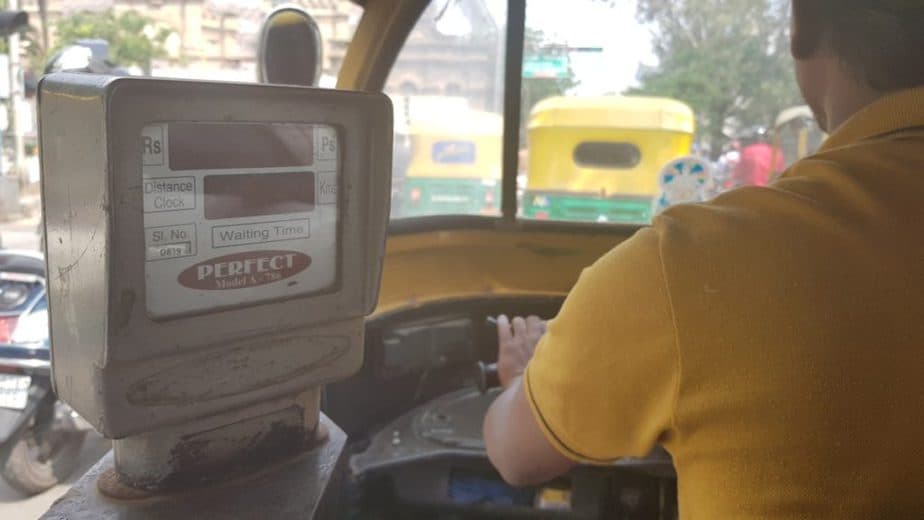
“You are like an ATM, would you negotiate with the ATM?” This is what my Indian friend said when I was asking him about how to negotiate and get good prices in India.
Since taxi, rickshaw and private drivers negotiate with tourists every day, you can bet they have a few tricks up their sleeve on how to make more money.
Here are some of the most common taxi & private driver scams to avoid:
5. Pay 5x As Much
If you’re in a popular tourist destination like Delhi’s airport or train station, taxi drivers are going to assume you are new to India and are fresh meat. They will probably even ask you, “Is this your first time in India?”
Because of this, you will be quoted prices that are 5 to 10 times as much as the actual price of a ride.
When I arrived in Chennai, taxi drivers were quoting me prices of 2000 rupees to get to my hotel. I paid less than 500 rupees using Uber.
Often it’s best to avoid taxis and use Uber or Ola cabs. At big airports, they have a set pickup location. They also have fixed prices and you can avoid some of the hassles.
You can try pre-paid taxi booths, however there is a chance the driver might add on an extra fee when you arrive… just insist on the actual amount.
You can also order a shuttle from your hotel, although you may pay a bit more for this.
To save some money: If you’re at a popular tourist destination or a nice hotel, just walk a few blocks away to a less popular area and try to find another driver. Or if you are going to a very nice hotel, you might find the price is much higher. Just pick a landmark near your hotel and go there instead.
6. Pretending to NOT Know Where Your Hotel Is
Once you are in the taxi, the driver will pretend to not know where your hotel is. No matter how you try to convince them, they will pretend to not know (or maybe they don’t actually know).
But the scam comes when they want to take you to another hotel… “very nice, very clean, very good price…” Of course, you will pay higher rates, they will get a commission from this hotel and make a bit of extra money.
7. Pretending Your Hotel is Closed
This scam is another version of the one above. They might even “call” your hotel to confirm or stop in the area of your hotel and ask one of their friends… who will try to convince you the hotel is closed.
When you are convinced, they will take you to another hotel where you will pay higher prices and they will get a commission.
8. Pretending There Are Riots Around Your Hotel
Similar to the scams above, the driver will convince you they can’t get to your hotel. They might even stop by a policeman who confirms that there are riots in that neighborhood.
But of course there will be another hotel close by, and you can bet they will get a commission.
9. Going the Long Way
This is a trick in any country and is very effective. When I first arrived in India, I got in an Uber and after 10 minutes of following our route on Google Maps, I noticed the little dot of my hotel was getting farther away.
We were heading the opposite direction!
The driver might have made an honest mistake since he seemed confused as well. Or maybe this was his plan. Either way, he would have made more money by taking me out of the way, and that’s something you can keep an eye on using a map app.
10. Taking You To The Wrong Hotel or Restaurant
Sometimes a hotel or restaurant will have a similar name to a very popular hotel or restaurant. Then the driver will “mistakenly” take you to this similarly-named hotel or restaurant… and collect a commission.
If you follow along with a map app and pay attention to your destination, then you can avoid this.
11. Faster Meter
In big cities like Mumbai and Delhi, taxi drivers are required to use meters. However, there is a way that a driver can alter the meter so that it goes faster than usual.
This will be hard to spot if you are new to India. But once you’ve been here a while you will notice it moves faster than usual.
Even if you are new, you can ask at your hotel or ask locals for estimates on the prices to certain destinations.
If this happens and you aggressively confront them, you may find them less likely to change. What works better is to say… “I see your meter is broken. I know you are honest and getting it fixed, so you won’t charge me that price. How about [REASONABLE PRICE]?”
12. Broken Meter
Another version of this is that the driver will say, “Meter is broken, very sorry.”
You can try to negotiate a fair price before getting in, but it is illegal for a taxi to not use a meter in Mumbai so you could use that to your advantage.
It might be better to say, “I would prefer to ride in a taxi with a meter unless you can get it working I will try someone else.” It might magically start working with this approach.
13. Doing The Driver A “Favor”
If the driver is willing to give you a low price, be careful. They might say… “Excuse me, but could you do me a small favor?” Then they will ask to take you to a shop.
Or they will say visiting an emporium is a part of the ride and they will offer you a lower price.
Of course, once you go to the emporium you will be facing some high-pressure sales tactics to get you to make a purchase, so the driver can get a commission.
If you just firmly say “no,” you can avoid this.
14. Paying For Gas
The driver might stop for gas along the way and ask you to pay extra for the gas. Just insist on the initial agreed-upon price and refuse to pay extra.
15. Paying “Road Fee”
You may be stopped by police asking for a “road fee.” This is code for paying a bribe. Some drivers will help you by refusing, and continuing along.
However, other drivers might refuse to move until you pay the fee. This is a tough one to negotiate around and you may be better off just paying the fee.
If you were feeling brave, you could try to negotiate or you could photograph the policeman’s badge. If there are other cabs in the area, you could get out and try another one.
16. Taking More Passengers
Sometimes you’ll go to the pre-paid taxi booth and get a ticket for the price to your destination… then instead of departing, the driver will wait for other passengers.
The driver has an incentive to do this to make multiple fares on one ride. If you insist on going alone, most will listen to you. If not, find another taxi.
17. Stealing From Your Luggage
If you’re hiring a private driver for the day, you will want to be conscious about leaving expensive items in your luggage.
I’ve had nothing but good experiences with private drivers, but I have heard friends “lose” a GoPro camera after leaving their luggage unwatched and there wasn’t much they could do.
18. Higher Prices For Multiple Days
When booking private drivers, you may find them asking for much higher prices if you book a week ahead of time. You’ll find these scams near major airports or train stations where new tourists arrive.
It is similar to the fake tour scams. Typically you might meet someone who says they can “help” you. They might even claim that your hotel is closed or there is some calamity which means that you can’t go along with your original plans.
Then they take you somewhere to book a new driver for multiple days or a week, and you can guarantee the prices are much higher.
How to Avoid Taxi & Private Driver Scams:
- Use Uber (click my link for details) or Ola Cabs for fixed prices
- Use Google Maps to find your destination & follow along
- Download the map to use offline in case you can’t get a signal (although you should get a SIM card)
- Have your hotel’s phone number saved in your phone
- Ask your hotel or locals how much it costs to go to popular places
- Negotiate a fair price BEFORE you get in the taxi
- Use my simple script to negotiate a fair price for rickshaws or taxis before you get in
Transaction & Money Scams
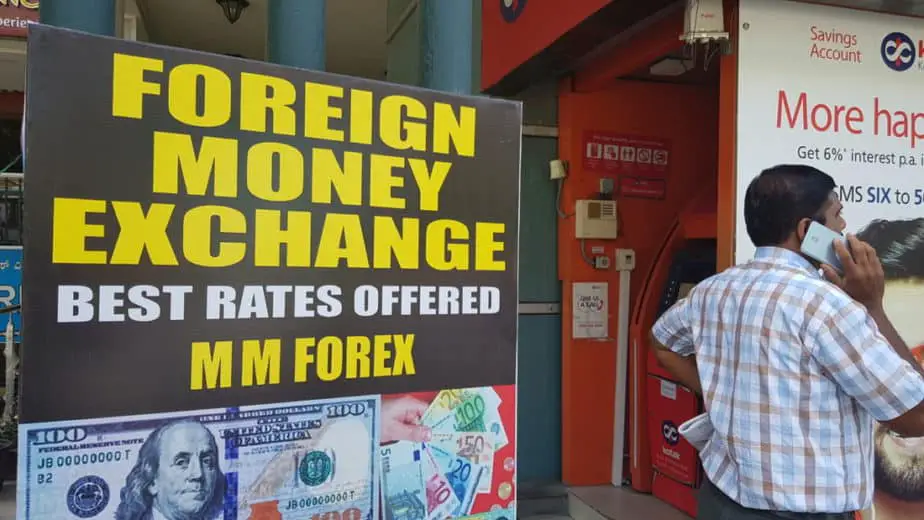
The most common scams often happen when you are paying large sums of money, so it is in your best interest to pay careful attention at these times.
Here are some of the most common scams around transactions and money:
19. Dropping a Bill
Let’s say you’re paying for a large transaction with 2000-rupee notes or 500-rupee notes. Once you hand over the money, the merchant is going to count the bills, but say you are one bill short.
This scam requires skill because they either drop a bill on the floor or hide it quickly.
Then you have to pay an extra 2000 or 500 rupees. This happened to me once while I was paying rent. I thought I had just miscounted, which is why this scam works.
Avoid this by watching the merchant carefully. You can also photograph the bills before you hand them over.
20. Fake Note Switcheroo
There are an estimated 4 billion fake rupees in India, according to the Economic Times.
The scam goes like this… you hand over a bill or many bills, then the merchant hands one back saying it is fake.
He is probably right too, that bill is fake. The scam is that he took your real bill and exchanged it for a fake one he was hiding. Then you lose 2000 or 500 rupees.
21. Getting Ripped Bills
Merchant will not accept currency with ripped edges. However, they try to give you ripped bills.
This has happened to me so often, I have a stack of ripped bills I can’t use at home.
To avoid this, just inspect all your bills and ask to exchange any that are ripped. They always will do so.
22. Not Having Change
Many places don’t have a lot of change, so getting change is always tough in India.
The scam works by either giving you the wrong amount of change. If you catch it, then they might say they don’t have change.
This happened to me at a local chai shop. The chai was 20 rupees and I gave him a 100 rupee note. He said he didn’t have change. However, I just looked in his drawer and saw he had stacks of change. When I pointed that out, he chuckled and gave me change. [You gotta get up pretty early in the morning to pull one over on this guy 🤓]
23. Saying You Gave the Wrong Amount
Let’s say you hand the merchant 1000 rupees, you may find that he insists you only gave him 100 rupees.
Avoid this by watching all your transactions. With large transactions, consider snapping a photo of the bills before you pay.
24. ATM Skimming
ATM skimming uses an electronic card device, which appears to be a part of the ATM.
In reality, it is scanning your card, recording your pin, and duplicating your info to make other transactions.
Look for a ATM card reader than looks larger than usual. Check the keypad for small cameras and if it is larger than usual. Cover the keypad when inputting your PIN.
25. Black Market Money Exchange
If you’re in a popular tourist destination, you may find many people asking if you need to exchange money.
You should only exchange money from authorized dealers such as your hotel or an RBI-approved firm.
Black market money exchangers could scam you by offering you a great rate on the street, but when they get you back to their location, you may find that they add on hidden fees or use high-pressure tactics to get you to pay higher fees.
26. Paying Higher Fees When Exchanging Money
Airport outlets are notorious for charging hidden fees when exchanging money. They prey on new tourists who don’t have other options (check the airport for ATMs instead!).
If you want to exchange money, check a few vendors before settling on one. Also, check the latest rates on Google or an app like XE Currency.
27. ATMs “With Conversion”
This is a tricky little scam that’s found all over the world.
When you’re getting cash from an ATM, you will often see a screen where you have two options:
- With Conversion
- Without Conversion
In India, it may seem obvious you want it WITH CONVERSION, because you may think that this means you will get rupees instead of your home currency.
WITH CONVERSION actually means… the ATM will make the conversion for you. Often at a much higher rate.
WITHOUT CONVERSION means your bank will make the conversion AND this is the option you want if you have a good bank.
How To Avoid Scams During Transactions and Money Exchanges:
- Pay extra attention when making big purchases
- Photograph your bills before you make big purchases
- Avoid using 2000 rupees notes if you can
- Watch when merchants count your change
- Count your change carefully
- Watch for ripped bills
- Look out for ATM skimming devices
- Exchange money from authorized retailers
- Choose WITHOUT CONVERSION when using an ATM
Hotel & Restaurant Scams
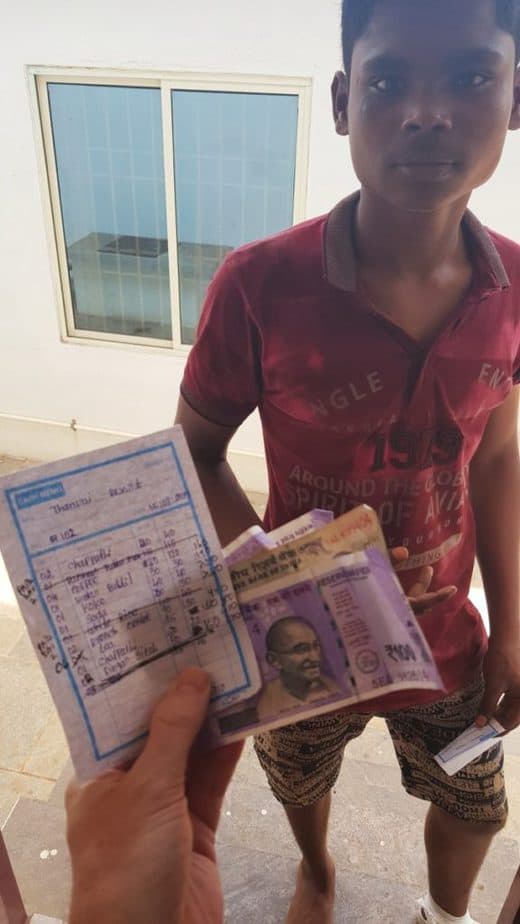
You’ll mostly have trouble at super-budget hotels and restaurants without many reviews on popular travel apps. Nice hotels and restaurants have a strong incentive to take care of you, so you will leave glowing reviews about their service.
Here are some scams that you might see in hotels and restaurants:
28. Paying Twice
If you pay when you arrive at your hotel, be sure to ask for a receipt.
When you check out, you may find that they insist you did NOT pay and will charge you again
I prefer to pay when I leave the hotel anyway, and if a hotel asks me to pay ahead of time, I will usually request to pay after I stay.
29. “Locking Up” Your Bags
Some hotels have a room you can “lock up” your bags if you are not able to check-in yet or if you need to store your bags after you check-out.
Just keep in mind that if you are staying in a very budget hotel, the workers don’t make a ton of money, so if you have expensive items in your luggage… there is an incentive to “lose” those items.
If something mysteriously disappears from your bags, there is very little you can do at that time.
30. The Higher Priced Menu
At some touristy restaurants you may find that you are shown a special menu that has higher prices.
Another version of this is that you may ask the waiter what is good and they will offer you a “special.” You may find that the special is much higher than the typical items on the menu.
31. Extra Cocktails/Rotis and Service Charge
When you check your bill before paying, keep an eye out for being charged for extra items. One common example is being charged for 5 extra cocktails or something.
This is easy to spot, so when you ask to have them removed they will apologize and say they were mistakenly added to your bill from another table.
Now comes the real scam… When they delete the cocktails, they will not remove the 15% service charge on the previous higher price.
Most people wouldn’t think about that and pay. To avoid, this you’ll need to ask for a new receipt and check the math.
32. Food Poisoning & Hospital Charges
In Agra, some travelers reported cases of food poisoning from a particular restaurant.
The scam works like this… the restaurant gives you contaminated food so that you quickly get sick.
The restaurant owner then suggests and helps you go to the hospital where it is recommended that you stay the night.
You pay the charge for an overnight stay in the hospital… and the restaurant owner gets a kickback payment for this.
This is a more rare scam but it is included to show you the level someone might go.
If you go to well-reviewed restaurants, you won’t have any troubles like this.
33. Drugging You & Stealing Your Bags
Women know that they need to keep an eye on their drinks so that someone doesn’t try to drug them.
The same applies to men when traveling. Just keep an eye on who has access to your drink.
One scam is to drug a tourist and take their bags. For instance, this could happen while stopping at a restaurant while you are riding a bus.
How To Avoid Hotel & Restaurant Scams:
- Pay a bit more for better hotels and restaurants
- Choose hotels and restaurants with an online presence on Google, Booking.com, Yelp or other review sites.
- Keep track of your receipts and photograph them.
- Review your restaurant bills, looking for extra items or service charges
Shops & Markets Scams
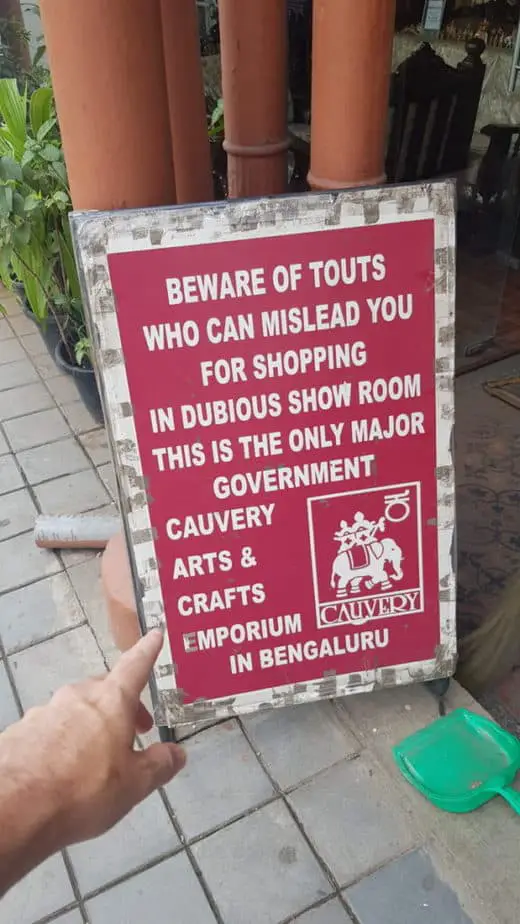
When you are buying things in shops and markets, there are a number of scams to keep an eye out for:
34. Water Bottles Filled with Tap Water
You might have seen this scam in the movie, Slumdog Millionaire. I’ve never seen it in practice, but I always check my water bottles for a seal before purchasing.
35. Milk Cut with Tap Water
If you’re buying milk, you might find that tap water has been added, so it’s important to buy it in a box or bag from a major brand like Amul, Dairy Best, or Nestle.
36. Watermelons Injected with Sugar Water
This is a tricky one to spot. But by injecting sugar water into the fruit, it increases the weight so you pay more.
37. Fake Cashmere or Pashminas
The word cashmere comes from the northern region of India called Kashmir, and pashminas made from this luxuriously soft fabric are one of the best souvenirs in India (check the link for 32 other good gifts for men).
If you find super lower prices on pashminas, you can be sure they are fake. Go to a government-owned store to be sure you get real cashmere. The prices range from $300 to $1000 for these exceptional quality goods.
38. Fake Saffron
If you are enjoying the beautiful Dal Lake near Srinagar you will find merchants approaching your boat selling saffron.
Saffron is the most expensive spice in the world, so expect to pay around 290 – 400 rupees for 1 gram.
However, fake saffron is often sold. Instead of this delicious spice, you will find Indian marigold or safflower, or dyed tendrils from maize cobs. Sometimes dyed grass or straw might be added to real saffron as well.
39. Fake Sarees
Sarees are the traditional clothing for women in India, which can make a wonderful gift or souvenir.
However, you may find sarees saying they are handmade when they were in fact mass-produced by a factory.
40. Fake Marble
In Agra, you can witness the iconic white marble mausoleum, the Taj Mahal… and you may be tempted to buy a marble souvenir.
Just be careful you buy an authentic marble gift!
Look for opaque marble that will not let light through. Ask the merchant to demonstrate the marble is real. They will be happy to and will turn the lights off and shine a light through their product.
41. Fake Silk
You might want to buy some beautiful silk for a saree or sheets.
However, like most popular goods you need to look out for fake silk.
You can tell you have real silk if you rub your fingers on it, and the material warms up. Fake silk will not change the temperature at all.
42. Fake Designer Products
You can find fake designer products anywhere, including the street markets in India. For instance, you will see Gucci t-shirts or Nike hats. If they are sold on the streets, you can be sure they are knock-off products.
43. Poor Quality Clothing
In many popular tourist destinations, merchants will tell you whatever you want to hear to make the sale.
For instance, I made all the mistakes in Agra when I wanted to buy an authentic shirt before going to the Taj Mahal.
First, I asked a rickshaw driver to recommend a clothing shop. Mistake #1. He, of course, took us to an emporium that would give him a commission, meaning they needed to charge more to cover that cost.
I asked for an organic cotton shirt and the salesman assured me it was. When I asked why it didn’t say so on the tag, he changed to say, it was made with the best cotton available.
I negotiated for quite a while and ended up paying 1000 rupees for the shirt. I had talked him down from 1500 rupees which is okay.
I later saw the shirt in every tourist shop in every city we went to. In a smaller city, I had merchants saying they’d give it to me for less than 500 rupees. 🤦
44. Fake Sunscreen
If you are on the beach in a place like Goa, you may find people selling sunscreen.
Be sure to squirt a little out first and test it, because you may find they are actually selling baby lotion.
45. Fake Sandalwood
Sandalwood is another great souvenir, but be aware that some products may be fake.
Mysore is known for its sandalwood products, however, you may find merchants selling similar looking wood.
Go to a government-owned store to assure you get authentic products.
How To Avoid Scams at Shops & Markets:
- Take your time when buying goods and don’t fall for high-pressure tactics
- Go to government-owned shops where you can assure the products that you buy are authentic
- If a price is too good to be true, it probably is
Street Scams

Making a living in India can be very hard, which is why you will be approached by many people in the streets: asking for money, asking for food, asking you to look at their shop, and more…
46. Women With Babies Asking For Milk
This is a heart-wrenching scam. A woman will have a sleeping baby in her arms will come up to you with pleading eyes… “No money, milk please…”
This is tough to refuse. However, the scam works like this… the women rent the baby and the baby is drugged so it continues to sleep.
Plus, she will not keep any milk you buy. Instead, she will return it for money with the shopkeeper who is complicit with the scam.
47. Kids Asking for Pens
This one is similar to the above scam, except this one, uses cute kids.
They will ask for pens, then lead you to a shop to buy them. After you leave, they will return the pens to the same merchant for money.
The money probably won’t even go to the kids, but will instead go to someone who manages all the beggars in the area.
48. Prescription Medicine Scam
Someone may approach you asking for money for medicine, as they hold an empty medicine bottle.
They may direct you to a nearby pharmacist who can fill the order. Then once you leave, they will return the medicine for money and continue the scam with the next tourist.
49. Blind Beggar Scam
You may find some beggars awkwardly walking the street with a sign that they are blind. You will instinctively want to help them of course, yet at the end of your walk, you will be asked for a donation to help.
Yet the beggar might not even be blind.
50. Student Tour Guide Needs Books
You may find a “student” offering to be your guide in exchange for your help in buying them books.
Then when you finish the tour, you may find the books are overpriced, and will only be returned to the merchant for cash as soon as you leave.
51. Poo or Garbage Scam
This is one of the more devious scams. A man will actually squirt poo or garbage on your shoe.
Then he will approach you in a friendly manner pointing out that you must have stepped in something.
He will then direct you to his friend nearby to clean your shoe for 500 rupees or so.
52. Elephant Scam
You may see elephants in the streets and want to take a photograph with them.
Just be aware that you will need to pay for a photograph.
Ask first and negotiate a price before snapping away. If you take a photo first, you may find the animal’s keeper will demand a much higher price.
You should be able to pay 10 or 20 rupees for a photograph by negotiating first.
53. Decorated Cow or Yak Scam
Similar to the elephant scam, except with a cow or other animal that’s been dressed up.
It is a business for someone to dress up their animals and provide photo opportunities for tourists. The only scam comes if they make it seem like this is free.
54. Friendly Local Scam
“Hello, sir,” big smile… “Which country are you from?” It is common for someone to approach you being very friendly.
They will ask if you need help with directions and it will seem like they are just a friendly local.
But you can guarantee they are going to ask for money once the exchange is finished. Or they may lead you to a shop or a fake tourist agency.
If you need directions, go inside to ask at the desk of a hotel or go up to someone else instead.
55. Ear Cleaner Scam
This is a weird one. Someone is going to ask to clean your ears, and they are going to pull some stones out. Or they might claim to clean it with a rusty nail.
56. Horse Drawn Carriage Scam
Similar to the taxi scams, except it will be in a romantic horse drawn carriage in a city like Mumbai.
They might take you somewhere besides your destination, to a fake tourist center or to a secluded place and demand a high price.
If you want a ride, negotiate the price upfront, and get out if the route changes.
57. Petrol Station Scams
If you’re filling up your scooter or car with petrol, there are a number of ways you might get scammed.
The most common is that the attendant will not start the gas meter at zero.
Honest gas attendants will point out that the meter is at zero before they start pumping.
58. Street Performer Scam
All street performers will expect you to pay if you take a photograph or spend more than a few minutes enjoying their show.
This makes sense too since that is how they make their living. Only stick around if you don’t mind adding some rupees to their jar.
Keep in mind they will often ask for more no matter how much you give, and. itis okay to refuse at that point.
59. Indian Flag Pin Scam
A woman might approach you and pin an Indian flag on your shirt.
This will seem nice until she demands 100 rupees or so for this uninvited service.
60. Pickpockets
Most Indians are super nice and will point out if your wallet or phone is sticking out of your pocket.
But keep an eye out for pickpockets, especially in crowds and big cities like Delhi or Varanasi.
You can wear a money belt or travel pants with a secret pocket to prevent this.
61. Smash & Grab Motorbike Theft
Similar to pickpockets, many thieves will ride motorbikes and drive past you to grab your purse, bag or expensive camera.
How To Avoid Street Scams:
- Don’t give money to beggars (you can give to charitable organizations if you want to help)
- Expect to pay for any help or service you receive, if you didn’t ask. Refuse the help or service, if you don’t want to pay
- Practice common sense with your belongings to avoid theft
Train Scams
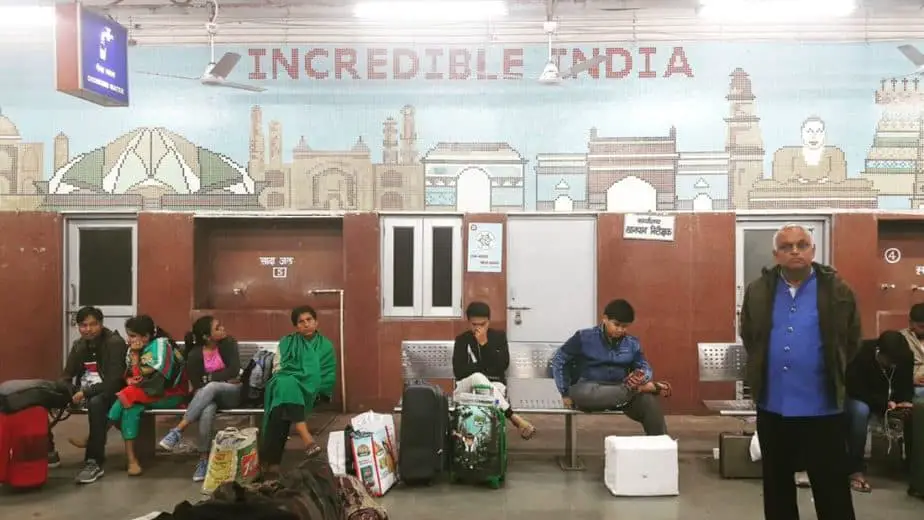
Train stations in big cities like Delhi and Mumbai have a lot of scams, so stay attentive.
62. Fake Train Captain
On most trains, the captain comes around and you have the option to upgrade your tickets.
This can be very helpful. Some travelers will book general compartment tickets, then just upgrade once they are on board.
But the scam works like this… a fake captain will come around wearing the same blue jacket as the captain and asking if you want to upgrade for higher prices.
You can spot them because they will only approach foreign tourists.
63. Fake Train Worker
You may be approached by a fake train worker in the station asking to see your train tickets.
They will say your train is delayed or cancelled. Then direct you to a fake tourist booth where you can buy fake over-priced tickets or tours.
You can check Cleartrip.com to stay up-to-date on your train and avoid anyone suspicious in train stations.
64. Fake Train Tickets
Fake tourist booths might sell you fake tickets. You can tell these are fake because they usually don’t have many computers and their sales tactics are high-pressure.
65. Fake Train Baggage Checker
As you are getting your baggage checked in a train station, you may meet a fake bagger checker who requires a fee for you to get your luggage back.
How To Avoid Scams at Train Stations:
- Be suspicious of anyone who approaches you and offers to “help”
- Track your train using Cleartrip.com
- Know the price of ticket upgrades
- Keep an eye on your baggage at all times
Tourist Attraction Scams
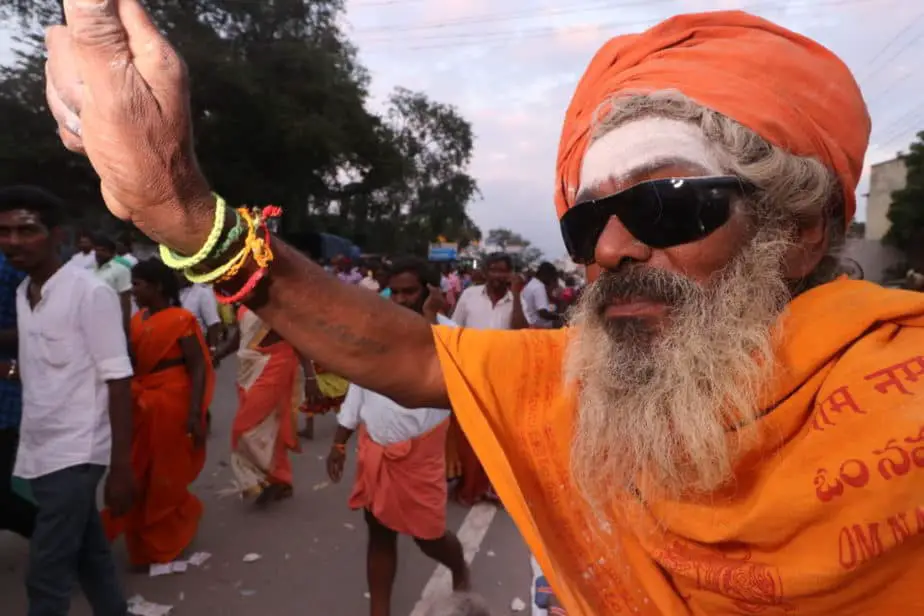
You’ll find more scams waiting for you around tourist attractions, even spiritual temples.
66. Pooja Scam
“Priests” may offer to bless you at some temples. They may say it is donation only or pay what you want, but after the pooja, you might find they demand high prices.
Some may claim to bless your dead parents or help you find your soulmate.
These are scams. You can donate to some temples if you wish, others have an entry fee. But just refuse any services by “priests,” unless you want the experience and are willing to pay for it.
67. Bracelet Scam
Someone will approach you and put a bracelet or thread around your wrist without asking.
It will seem nice and welcoming until they demand 100 rupees or so for this uninvited gift.
68. “Gift” Scam
In general, if someone at a tourist site or on the street offers you a “gift” they are going to ask for money sooner or later.
69. Gemstone Importer Scam
In places like Jaipur or Goa, you may find someone approaches you to see if you want to “partner” with them to import gemstones back to your home country.
You will be asked to pay for the “valuable” gemstones (which are worthless). They will instruct you on how to meet their other partner in your home country and promise a high payment for your trouble.
70. Unofficial Tour Guides
Around most destinations, you will find unofficial tour guides offering their services.
Tour guides in India have to get a license, so a licensed guide will be happy to show you their certification.
It is very nice to have a great guide, but I recommend finding a guide from your hotel or online before you get to the site.
71. Skip the Line VIP Tickets
Someone may offer you a VIP ticket where you can skip the line.
This is not possible, however. This person will simply cut the line for you or he may have an arrangement with the guards to cut the line.
Scams by Destination
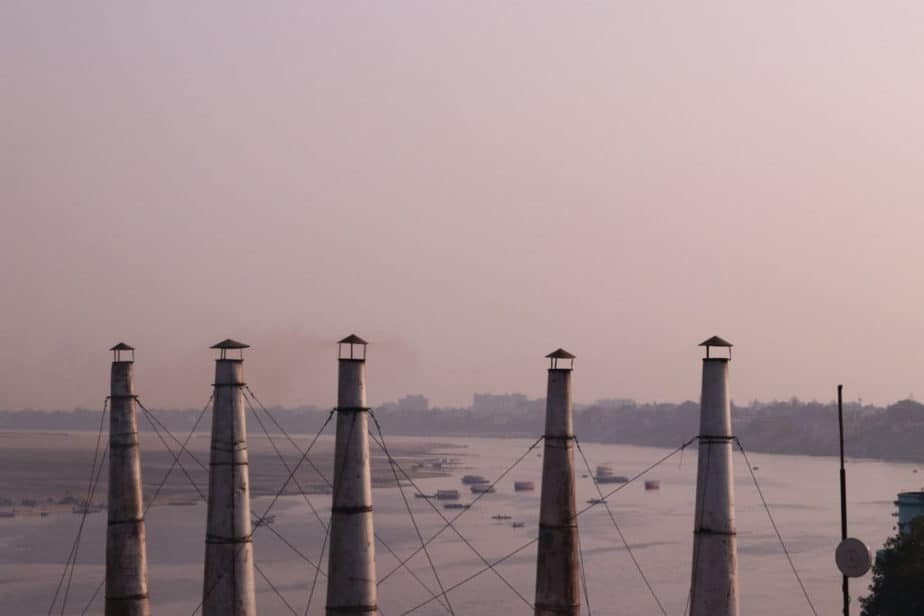
Some scams are specific to certain destinations, and here are the most common ones:
72. Burning Ghat Donations in Varanasi
Near the Manikarnika Ghat (or burning ghat) in Varanasi, you will be approached by a number of unofficial tour guides.
They will come up and just start telling you about the ghats.
If you are like my mom and aunt, this will seem harmless and helpful. Until later when they pitch you on making a large donation for their “organization,” which provides cremations for the poor in Varanasi who can’t afford one.
My aunt gave a donation and was later told by our official guide she was duped by a drug addict 🙁
73. Burning Ghat Photo License Fee in Varanasi
Another scam at the burning ghat happens if you take a photo.
Taking photos is not allowed close to the cremations, however there is no fee to take photos. If someone sees you they will ask if. youhave a license.
They will claim to take you to the police and pressure you into paying. Yet there is no license required, it is just considered disrespectful to photograph the cremations.
74. Massages in Varanasi
Near the Dashashwamedh Ghat, which is the central ghat in Varanasi, you will find some locals coming up to give you a massage. They will say, “no money,” if you refuse.
After they will demand “a little money” and even if you negotiate the price ahead of time, they are going to try to upsell you at the end.
If you insist on what you agreed upon though, you can avoid the inflated prices.
75. Boat Scams on Dal Lake
If you hire a boat on beautiful Dal Lake in Srinigar, you will find that you need to negotiate fiercely to get a fair price.
You will also be stopped on your trip by other boats that might try to sell you fake Kashmiri products.
You might also be charged inflated price for photo opportunities.
76. Fishing Net Scams in Kochi
The Chinese fishing nets in Kochi might make for some great photographs and take you back to a more traditional time.
However, you may be invited by a friendly local to help pull the nets up and down. He will offer to take photos of you and if you know that you will be expected to tip well at the end… this is not a scam.
But if you think he’s just doing it to be nice, you may feel scammed at the end when you are asked for a tip. Then you will usually be asked for more, no matter what you give.
Miscellaneous Scams
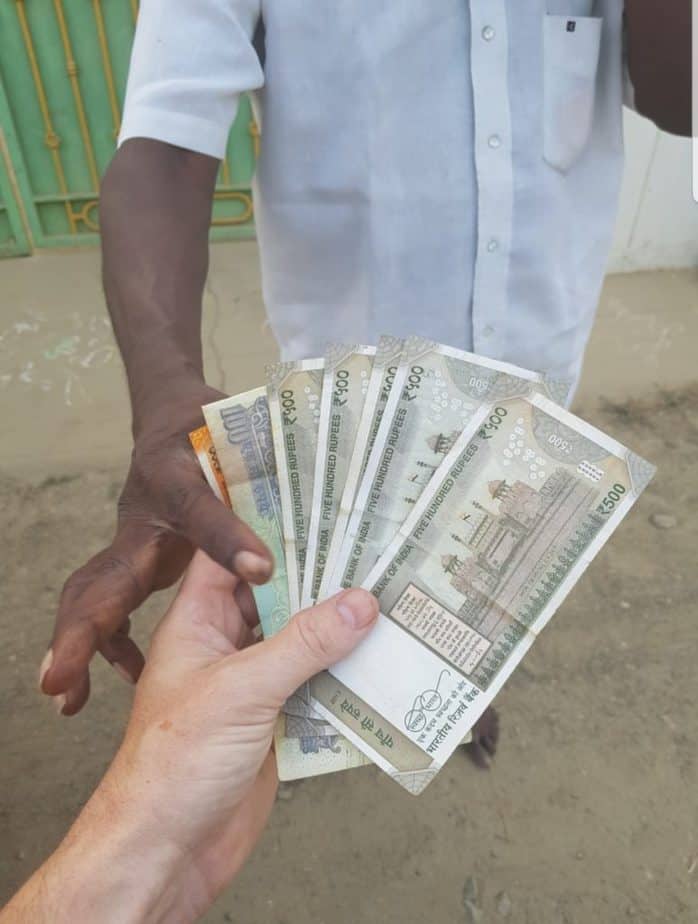
77. Fake SIM Cards
Getting an official SIM card in India means filling out a number of forms, showing your passport and visa, and waiting a few days for authentication.
Some mobile operators might offer you a chance to get a SIM card without this hassle though.
BUT you will be buying a used SIM card and will probably receive phone calls for the last owner. Plus, the card might also mysteriously stop working at any time.
78. Fake Doctors
There are a number of “doctors” who don’t have any credentials.
If you go to a respected clinic or hospital you won’t have to worry.
But do check the credentials of your medical professional if you go to a clinic in a tourist area.
79. Internet Fixer Man Service Charge
If you rent a house in India like I did, you may find yourself paying a number of “service charges.”
For instance, my internet went out one time. I called for help. A man came and basically just moved my router and wires around, doing nothing. He then left. Still no internet, but a few hours later it came back on. He came back and asked for money.
I later learned the internet just goes out sometimes for regular maintenance. He did nothing, haha.
80. Free WIFI
Many hotels and restaurants will offer free wifi. Be careful using it, because it is not overly difficult to hack your computer on a free network. While this isn’t a scam, it is a high-risk area for a traveler, especially if you work online.
You can protect your computer by getting a VPN like ExpressVPN.
Summary:
Just a reminder that you are going to mostly meet helpful and hospitable locals in your travels to India, but by being aware of all the tourist scams, you can keep an eye out for them and protect your money.
Mostly be aware:
- At popular tourist destinations, airports, train stations, and budget hotels and restaurants.
- Nothing is free in India, so expect to be asked to pay for anything given to you even as a “gift” or they say “no money”
- Carefully watch all transactions
- Negotiate prices in advance
If you are looking for more tips to help you plan your trip to India, I wrote a long post with my exact budget for a two-week trip in India. I also included a FREE tool you could use to plan your budget.

